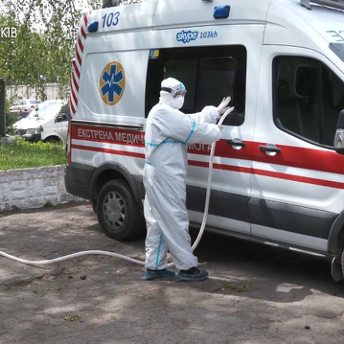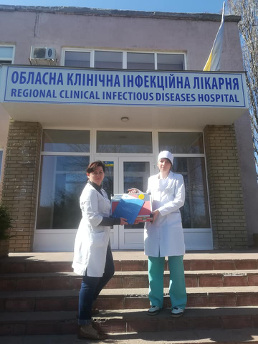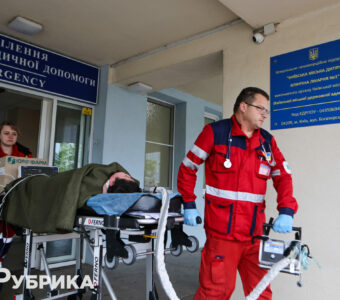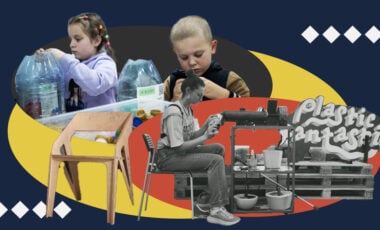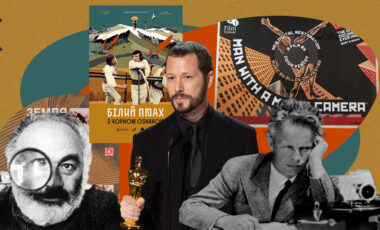How is the Academy of Sciences changing? First interview of Anatolii Zahorodniy, the new head of the NASU after Borys Paton
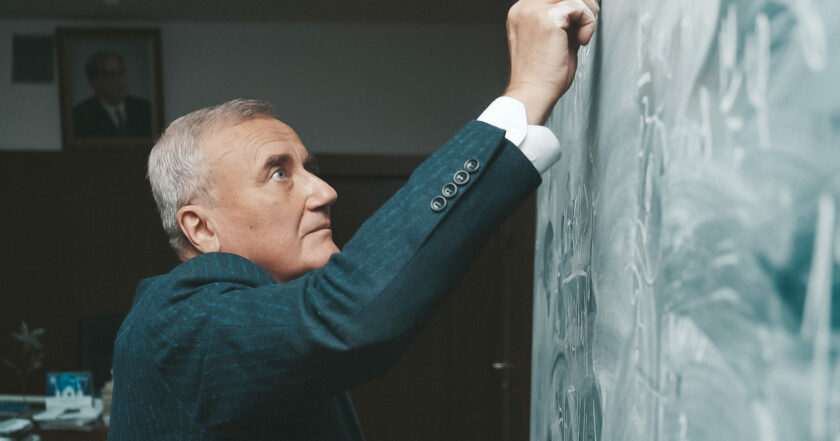
Anatolii Zahorodniy / Photo Rubryka
A new milestone in the history of Ukrainian academic science. In one of his last living interviews, the President of the National Academy of Sciences of Ukraine, Borys Paton, who passed away on August 19 this year, named Anatolii Zahorodniy as his successor at the position of the head of the most important institution in this field.
Finally, it happened on October 7, 2020; Zahorodniy became the new president of the National Academy of Sciences of Ukraine.
Anatolii Zahorodniy is a person well-known and respected among Ukrainian and world scientists. Doctor of Physical and Mathematical Sciences, Honored Worker of Science and Technology of Ukraine, Laureate of the State Prize in the field, a member of several foreign academies. Director of the Mykola Boholiubov Institute of Theoretical Physics. In 2009-11, Chief Academic Secretary of the National Academy of Sciences of Ukraine (NASU). Since 2011, Vice President of the NASU. Read about the life, achievements, and competitiveness of Ukrainian scientists, and about the "Paton era" in the life of modern Ukraine in an interview with Academician Anatolii Zahorodniy for Rubryka.
It was the "Paton Era"– from "developed socialism" to independence
– On August 19, unfortunately, Borys Paton, President of the National Academy of Sciences of Ukraine, passed away. Are we now aware of the loss we've suffered? Do Ukrainians understand the significance of this outstanding man in the history of Ukrainian science? Does such a perception come only with time?
– Obviously, the loss is painful for Ukraine, for science, and for understanding the role of science in society's life. Borys Paton was, of course, a genius. They've written a lot about him, and they'll write more. In short, Academician Borys Paton defined an entire era in the Academy's life. The Academy's evolution and widespread practical application of scientific developments marked the era of Paton. He was one of the most prominent scientists in metallurgy, metal technology, electric welding, and materials science; science organizer, and public figure. He developed alternative methods of automation of welding processes, new welding technologies (electroslag, plasma, and laser, electron-beam, hybrid plasma-arc) that radically changed the possibilities and prospects for developing these technologies. As a science organizer, he stood at the origins of dozens of Academy's institutes having world recognition today. More so, he was an Academy's averter, defending against squandering and "divvying up" its assets, which, truth be told, both government and business encroached on.
Borys Paton was an outstanding scientist who did a lot for science and technology development, both in Ukraine and in the world. As I've already mentioned, breakthrough welding technologies were developed under his leadership, that no one had any idea about before him. An example can be the welding of living tissues, now widely used in surgery, ophthalmology, urology, and other medical fields. In Ukraine alone, over 200,000 operations have been performed using this method. China has taken an active interest in this technology, and the United States has purchased a license for these welding machines. It's a revolutionary technology. The advantage is that it significantly reduces blood loss during the operation and time because there's no need to stitch. And, as far as I know, while using the technology, the surgical procedure has never led to any complications.
Then, on Paton's initiative, a unique space welding technology was developed. Successful experiments in various types of electric welding, electron-beam cutting, and coating were conducted in outer space. With building large orbital stations, the technology will certainly find its practical application.
– 58 years on the post is a long time. In fact, Paton managed the National Academy of Sciences of Ukraine from Khrushchev to Zelenskyi. It sounds colossal. What has changed at the Academy during this time?
– As a science organizer, Borys Paton is just an outstanding person. He was elected academy's president on February 27, 1962. So he had been on the post for over 58 years. These were the times of the Academy's rapid development. Borys Paton had an amazing sense of necessity to develop certain scientific researches. Dozens of institutes were created with his support and initiative. Including the Mykola Boholiubov Institute of Theoretical Physics, where we are now. If not Borys Paton, then one Boholiubov (world-famous mathematician and theoretical physicist, who was the initiator and founder of this institute – ed.) or even Petro Shelest (then First Secretary of Central Committee of Communist Party of Ukraine), who also actively supported creating a new scientific institution, wouldn't be enough to implement the initiative. Borys Paton had undeniable authority both in the state's leadership (and the then USSR, and especially in Ukraine) and among scientists and manufacturers.
– What was his authority? What person was Borys Paton like? From Zelenskyi to Khrushchev, it's incredible!
– Actually, he was born under Lenin, then worked under Stalin, then went through the entire vortex with the party leadership. First, it's talent, second, it's deep education, third, given the life you mentioned, it's a tremendous experience, and fourth, it's an extraordinary ability to work. He worked at least 12 hours a day, and I can attest to that. I had had the honor of working side by side with him since 2009. I was then Chief Academic Secretary of the Academy. Sometimes, it was hard to even talk to him calmly, as he was busy. We usually discussed academic issues after 8 p.m. I repeat, he had an extraordinary ability to work. Although he was already 91 years old.
The vacation was an imaginary concept for him. He took a lot of literature with him; in the academy, they specially prepared materials about events in the scientific world for his trips. From vacation, he brought a good dozen finely written sheets of paper, which we jokingly called "Paton's sea waves," where he'd written what needed to be done for the Academy to move forward and develop. There were tasks for his colleagues, assistants. And it's just unique.
In addition, his education and self-education, and ingenious ability to accept the new.
Authority was further enhanced by him being a seasoned master of building human relationships. Rarely did he bring any disputes to a conflict situation. I don't remember such a thing. He tried to avoid it as much as possible. I can testify that dozens of people who came to him always came out of his office just be-winged. It applied to both science and domestic issues. If God forbid, one of his colleagues (and his colleagues were mostly from the Academy) or acquaintances fell ill, Borys Paton left all business and called familiar doctors of the Academy of Medical Sciences, our best medical professionals, and said: "Here's such a problem, please help." He was very human. And to top it all, he had a unique, charming smile.
His authority grew because the academy began to develop rapidly, and there were many adoptions. He did a lot for the economy of both the Soviet Union and Ukraine. The automatic welding systems used to build tens of thousands of kilometers of oil and gas pipelines, including in the harsh Northern conditions, technologies for welding high-quality large-diameter pipes, and creating reliable elements of rocket and space technology, are the merit of his and his colleagues. The state leadership saw the successes and academy, and Borys Paton himself, which made them confident in him and his words. One word from him, sometimes, was enough to solve any issue at a top-level without delay and many inquiries.
If Paton said he would do it, he would do it. We were confident. I'll repeat myself once again: the man was unique.
Here's a story I heard from his colleagues showing how much they respected him. Once he visited a shipyard in Glasgow. And when the shipyard's chief engineer heard that Paton himself had arrived, he took off his jacket, threw it on the floor in front of the door, and asked Paton to step on it. He said, "I'll be proud that Paton's foot stepped on my jacket." And there were many examples. His authority was working for him.
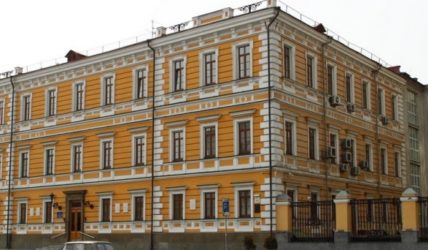
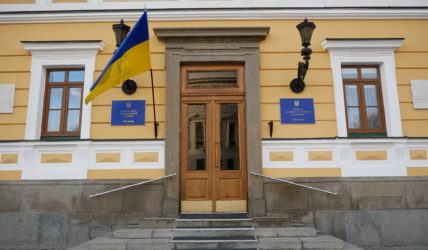
– What an interesting story! We bet that it's not the only one.
– It's true. Once Dmitriy Shyrkov, a highly respected Russian academician and student of Mykola Boholiubov, visited. He agreed with Borys Paton to hold an international conference dedicated to the 90th anniversary of Mykola Boholiubov's birth. It was 30 years ago. After talking to Paton, he left the office and said: "You have no idea how lucky you are." And he repeated it five times. I asked why exactly we were lucky. He replied: "Because you have him as a president of the Academy of Sciences. We'd like to have such a president."
Heads of state and presidents of academies bowed their heads before him and had the honor to touch him, literally. When the 100th anniversary of our Academy was being celebrated, a line formed near Paton to shake his hand. The president of the Chinese Academy of Sciences was in that line; he's one of the most powerful and respected people in the scientific world of the Academy of Sciences. He approached Paton, bowed, and said, "It's a great honor for me to work with you and your academy. It's great we have such cooperation." The president of the Austrian Academy of Sciences and other foreign guests said the same. The line was long, everyone wanted to meet him or see him again.
I should say that Borys Paton was very communicative. However, he clearly distinguished empty chatter from the matter. When they started talking just for the sake of it, the conversation could end quickly. He hinted: let's talk business. He always focused on the essence of the issue. I was present at many meetings, saw how he conducted them. Conversations were about very specific things.
They say when he was still a young director of the Institute of Electric Welding, established by his father Yevhen Paton (now Yevhen Paton Institute of Electric Welding of the National Academy of Sciences of Ukraine), once a month he visited all departments, talked to all heads of laboratories personally. More so, each employee wrote a work plan for the next month which the head of the laboratory and Borys Paton signed, and the next time they started with discussions: where your plan is, what was done, what was not; if not done, then why.
New times and new challenges of NASU
– When Paton managed the Academy of Sciences, a lot was based on his personal contacts. Now that Paton has passed away, how much is the role and communication of the Academy of Sciences changing with industry, production, the government, with those people the academy funding depends on? What new challenges have arisen now before NASU?
– You're absolutely right. A lot hinged on his personal authority. Now we have problems. I'd say, not even problems, but challenges. Now times have changed; the economy has ceased to be pre-arranged, enterprises are largely privatized. But communications haven't been lost. The academy has worked very hard with scientific and technical enterprises. These are, for instance, "Turboatom" company, "Pivdenne" engineering bureau, "Antonov" state enterprise, "Motor Sich", and others. A lot is being done for practical implementation. The stage has come when business is being done, and everyone perceives it as a natural process: no one talks about it. Naturally, the Academy should significantly strengthen communication with society and the government. We need to speak loudly about the positive things the Academy gives. We have something to be proud of. Believe me, despite all our poverty, despite all the underfunding, the Academy continues to provide Ukraine with an image around the world as a state with a high-level science. We have many world-class results in basic research: in mathematics, physics, and astronomy, in chemistry and molecular biology, in materials science, and in many other scientific fields. It's not so easy to list them all. We have unique equipment, which the rest of the world doesn't (in particular, the world's best decameter radio telescope). So we're respected and recognized. Of course, we cannot cover everything, but we have world achievements and advanced technologies in many science fields.
"The world's largest radio telescope is in Ukraine"
Borys Paton was a person who supported building the world's largest decameter radio telescope in 1971. You see, there's an ordinary telescope through which we can see the night sky in the optical range. But electromagnetic waves are in all ranges. And so the decameter radio telescope is a telescope that observes the starry sky in the range of radio waves. It turns out that the starry sky in the decameter range is no less interesting than in the optical. There have been attempts in both the Netherlands and China to build competitive devices. So far no one has succeeded, and for another ten years, Ukraine will be at the forefront in decameter radio astronomy.

The world's largest radio telescope (UTR-2) is located in the Kharkiv region, near Hrakovo village. Currently, the UTR-2 station is looking for exoplanets (i.e. those outside the Solar system).
Radio Astronomical Institute carries out research and takes care of the radio telescope. It's a wonderful scientific team that makes extraordinary discoveries. For example, everyone knows that an atom is something microscopic. But it turns out that conditions are possible in space when the electron is in such a high orbit that the atom becomes almost a millimeter in size, so the size of the electron shell is a few tenths of a millimeter. In terrestrial conditions, it is impossible, but in space it is. The radio telescope also allows you to study flashes and thunderstorms on Saturn, and monitor space weather. Of course, there are fundamental and practical things. For instance, regarding space weather.
There is another example of unique local equipment. In Kharkiv, the Institute of Physics and Technology has a device for studying the interaction of dense plasma flows with the metal surface. It's a unique device that, in fact, nobody has anywhere else. And when the international scientific community began to design the International Experimental Thermonuclear Reactor ITER, the construction of which has recently begun in France, it was Kharkiv colleagues who used this device to study the properties of materials to be placed as the first wall. The fact is that it's not possible to isolate the plasma, ignited in a vacuum chamber, where a thermonuclear reaction takes place, completely, so the plasma interacts with the wall. So, you need to understand how various materials will behave and select the ones you need. They studied this in Kharkiv. Our scientists have worked hard for the ITER reactor. Ukraine isn't a member of this international project, because the financial contribution is very large and we cannot pay it, but through European partners, we take part in the work related to ITER. Ukraine is clearly visible on the European map of research in plasma physics and thermonuclear fusion.
So, the academy truly has world-class achievements. And I repeat that it is the results that shape the international image of Ukraine as a country with a high level of basic science. And it's not just physics. If we analyze, we're, more or less, represented in almost all branches of science, separate fields, where if we're not the best in the world, then we look decent. Therefore, I cannot agree with the statements I sometimes find in the media. They say that science in Ukraine is irretrievably lost; academic institutes have turned into landfills, etc. It's completely untrue and reflects the complete incompetence and ignorance of those who assume the right to make such statements. Certainly, the Academy must radically change its attitude to publicizing its achievements. It's necessary to make way through to TV channels at all costs, perhaps, have the channel on YouTube, work with bloggers, appear on mass media, inform society of positive changes in the Academy's life. As an example, I want to cite the Espresso TV channel's report on the graduation of Kyiv Academic University students, which took place this summer. Youthful faces, happiness, admiration. This story illustrates that you can get a decent education in Ukraine, an education that may not be available everywhere in Europe. They could make a separate program about Kyiv Academic University. Its leadership is young, ambitious, and talented people. They made an agreement to send their students to do master's theses on the most modern equipment in Europe. Students go there, gain experience in international scientific cooperation, return be-winged, happy that they have received an education worthy of the European one, and in some ways even better.
"Funding of Ukrainian science from all sources is only 0.26% of Ukrainian GDP"
– In one of your recent interviews, you said that funding for Ukrainian science is only 0.26% of GDP. How do you feel about such an indicator compared to European and American counterparts? Are they equivalent?
– Funding of the academy is the funding of 170 institutions (institutes, libraries, arboretums, reserves, etc.). In comparison, it's like the funding of a well-off American university. Last year we had a little over 4 billion hryvnias a year. Divided by a 25-hryvnia rate, it's the budget of an American university.
Another example. Our Academy is, to a large extent, a structure similar to the Max Planck Scientific Society in Germany. This society has a structure and governing bodies, formed with the same principles as in the National Academy of Sciences of Ukraine. It has institutes, laboratories, and the same functions. So, some years ago the annual state budget of this organization (funding not from business, or at the expense of adoptions) was 8,5 billion euros, and we had 4 billion hryvnias! Multiplied by 30, it is about 255 (!) billion hryvnias. So compare.
– And if to compare with other purely state Ukrainian structures? In one interview you mentioned that the funding of the Prosecutor General's Office, a respectable body, is almost twice as much as that of the NASU. For me personally, it was a shock. If we invest not in science, but in law enforcement, does that mean that all our lives we will deal with criminals and punishments, not science? How do you feel about such an imbalance?
– Of course, both the Prosecutor General's Office and other law enforcement agencies must have decent funding. But we must not forget about science.
We see in comparison what it looks like in practice. For example, if 2009 funding of our academy was about 1.8 billion UAH, and of the Prosecutor General's Office was about 0.98 billion UAH, then by 2019 the gap between us has grown significantly: we had 4.1 billion UAH (i.e. in the hryvnia equivalent, funding increased by 2.3 times), and the Prosecutor General's Office had 7.3 billion UAH (an increase of 7.4 times). Don't take it unkindly, I'm not against the General Prosecutor's Office or any other state institution of Ukraine being adequately funded. But let science develop as well! If you look at how useful the academy is, it deserves much more. I believe that we have to work actively with the authorities and the parliamentary corps in order to break the ice of indifference to science and to the academy in particular, in order to bring funding for science to the proper level.
– So is it more beneficial to be a prosecutor more than a scientist?
– I've never tried to assess the wealth or salaries of prosecutors (laughs). I don't want to say anything bad about law enforcement agencies. I'll repeat once again: they should have decent funding, but the state should also take care of science. Law enforcement has a lot of work, but NASU is doing a lot for Ukraine too.
For instance, the year before last we had a General Meeting. "Turboatom" Executive Director spoke about their outstanding achievements. His words: "Turboatom is one of the world's largest turbine-building companies. However, I want to emphasize that such success and job security became achievable thanks to close cooperation with Ukrainian scientific institutions and organizations, primarily with the National Academy of Sciences of Ukraine." It's obvious because you need to weld a multi-ton rotor and have to protect the turbine blades with special coatings. The Academy of Sciences provides all this with cooperation. Representatives of both Motor Sich and Pivdenne Engineering Bureau said the same. They recognize using a lot of our designs. I'm not even talking about the institutes of the Academy taking part in the works on extending the life of nuclear power units (now the service life of eleven power units has been extended, and it's saving tens of billions of dollars), creating new high-yielding varieties of grain crops (which today sow a third of all sown areas), developing new methods and means of monitoring the residual life of large engineering constructions and structures, and much more.
"People don't come to science to make a fortune"
It so happened that NASU works mostly on enthusiasm and receives very little for its developments, and can't always monetize them. Plus, most people don't come to science to make a fortune. For example, people come to work at our institute with extremely low salaries, because they are simply interested in gaining new knowledge. Studying science gives great moral satisfaction. Especially when you got a result that no one else had received before. You were the first in the world to do this. It inspires and elevates. Of course, we would very much like the salary to provide a decent standard of living, but unfortunately, it's not yet discussed.
– What is the salary of a young specialist?
– It depends on the rank. If it's Ph.D., a junior researcher after defending a thesis, then it's somewhere around 8000 hryvnias. You understand that it's extremely difficult for a young person to subsist on these funds. Especially in the capital, especially if you are not from Kyiv. It's impossible to rent a home and live on these funds.
– You mentioned people's deputies and your communications with them, with the budget committee, in particular. Do the representatives of the Verkhovna Rada profile committee have an understanding that the situation needs changing?
– A delegation of people's deputies, 12 people from different committees, visited our institute, and then there were more meetings, in particular in the Committee on Budget Issues. The issues were simple: what does the Academy do? Who does what at your institute? And when you explain, they react positively and understand. There's also mutual understanding with a specialized committee, the Committee of the Verkhovna Rada of Ukraine on Education, Science, and Innovation. This committee supported all of our proposals to increase funding for the Academy. And all this gives me hope. I hope there will be some progress here. Although … Of course, it's a colossal job.
COVID-19 and Ukrainian test systems
– There's an opinion that compared to our European or American colleagues and scientists, we are powerless in terms of COVID-19. Where are we with our capabilities, with our science? What can you answer?
– It seems to me that to consider that we are completely powerless is too much. We have the Institute of Molecular Biology and Genetics, which developed test systems in just two weeks. True, they haven't yet been introduced, and then the Institute even modified them. We have an excellent Palladin Institute of Biochemistry, Institute of Cell Biology in Lviv, where molecular biology is well-represented. It's all about basic research. Give us some equipment and things will get off the ground.
– So it's an issue of financing, equipment, and a certain amount of trust, isn't it?
– Trust is very easy to earn if you give a solid result.
– Why didn't the Ukrainian test systems go into production?
– It's the question for the Ministry of Health and the Center for Public Health. The bureaucratic red tape started there. They said there were some better systems, cheaper … I don't want to comment on this.
– Apparently, there was also corruption involved?
– I won't comment on this, I don't have specific information. Another example is better. There is a problem with disinfecting transport, premises … There is a fairly well-known ozone method. You just need to have a powerful ozonizer to fill the room with ozone for a few minutes. Then you ventilate it, and that's it. No virus there. Ozone is very active in destroying viruses. And then you need not treat the room with chemicals. In Kharkiv, there are ozonizer developments and working samples. The Kharkiv Department of the Ministry of Emergency Situations found out about it. Now there's a line to these ozonizers, developed by our Kharkiv Institute of Physics and Technology, including official cars, like ambulances. They put the tube into the car from the ozonizer, held it for 5 minutes, ventilated the car, and everything was fine. Therefore, it's necessary to organize the production of these ozonizers, because they are very convenient to use. The development has very great prospects. Today, thanks to the persistent position of the institute, producing ozonizers has moved off the ground, but the issue was being resolved slowly. Everything could be done faster.
ABOUT NASU, planned economy, innovations, and private capital
– Let's talk about the contact between science and industry. The Soviet Union had a planned economy. Everything went according to plan. Now there are new conditions, new requirements. Many people reproach the Academy of Sciences for relying only on state funds and not counting on private capital. But there is a lot of money in the world. Why do they support European, American, Asian developments, and no one wants to invest in our science? Do you see the problem here?
– What I see here is NOT so much a problem but a task. We need to strengthen this aspect of the Academy's activities substantially. It's necessary to communicate, support small and medium-sized innovative businesses, which could become a driving force for development and some adoptions. They may be small, but very useful developments. It's an issue with big business because while old technologies provide some kind of profit, few people want to risk their capital and take part in a not entirely straightforward business. Small and medium-sized businesses play an important role, but a favorable innovation climate is almost completely absent there. At one time, they began to do something; created technoparks brought certain benefits (customs, tax). Then these benefits were taken away from them. Authorities reproached that businesses began to abuse these economic preferences.
We urgently need a favorable innovation climate for small companies. I hope that we'll get this off the ground. It's necessary to introduce incentives and tax holidays at the legislative level. What is a startup, a small company? It's a small team undertaking to monetize some kind of development. But it must be a legal entity, rent premises, and equipment at the institute. Now, it is moving forward because medium-sized businesses are interested in creating such small companies and are financing initial expenses. And then the enterprise works for itself. Therefore, it's essential to create conditions like rental benefits. Maybe they could equate small research and production enterprises and public organizations that have certain benefits. At least as long as people do well, they'll start earning.
In any case, we'll be doing it. An example of such an initiative is the Kyiv Academic University. They understand that one can't go without interacting with the business. They created the embryo of an innovation center, are trying to find a common language, and establish cooperation between scientists and business. They initiated a scientific park "Academcity" based on institutes on campus.
"Talented youth don't go only abroad"
– Now there is an outflow of scientists abroad. Is it a big problem or not? And how to solve it?
– It's not so much a matter of abroad, but of the fact that young people are usually looking for better-paying jobs in Ukraine as well. New pharmaceutical, chemical, etc. companies are appearing. They take young and not so young scientists for positions with a high salary: one thousand, or even two thousand euros if a person is a qualified specialist. The outflow goes not only abroad but also within the country. All scientists are good at computer science. Some of them go to the IT business to work as system administrators in various institutions. And there's a demand for such specialists. How to keep them from leaving? There are three positions here that I'll defend as President of NASU:
- Providing decent conditions for wages by creating youth research teams. We've already started this practice, and it works. Funding is about a million hryvnias per year for a team of 3-5 people. It allows you to have a decent salary, and you can also go to a conference or internship if needed. We plan to increase the number of such youth groups. There are also many other incentives: the prize of the President of Ukraine, the prize of the Verkhovna Rada. But a few scientists can receive these awards. Also, I hope the competition run by the National Research Foundation will help. They require that at least half of project realizers must comprise young scientists.
- Each institution must create favorable conditions for career growth. A person should feel that they can get a position, run a laboratory, or a department, and make a career. We need to look for the best and create conditions for them. We must restore the personnel reserve. Once we had the concept. Now it's crucial to restore it.
- Solving the housing issue. It's important to enable people to get housing. If not free, then at reasonable prices. That's how it works all over the world. My Swedish colleague, I collaborated a lot with, once told me that. He says, "As soon as I was hired for a permanent job, I went to the bank, took a loan, built a house in the suburbs in a year and a half, and then paid it off almost all my life. By the way, he repaid the loan just before his retirement. For about 30 years, he'd paid it, but it wasn't burdensome for him. The practice would work for us. Or leasing of apartments could work. Because of implementing investment projects, the NAS of Ukraine receives apartments from the developer and distributes them as official housing. Today, we provide service housing for free, but then it's scarce. But if we make it chargeable, then the number of housing could be increased three to four times and provided to almost everyone.
"Academicians are forced to work for 4 days, or even less"
– You said that the current funds allocated by the state are only enough for 9-11 months of full-fledged work at the Academy. So some scientists are now working part-time, aren't they?
– It's different in various institutions. The employment rate at the academy is 0.85. Someone has a 4-day working week, someone else has even less. Some institutions have a rate of 1 or more. They can earn money. But the basic funding is enough for just 0.85. I hope that we will convince the deputies to raise this percentage at least a little because it's really hard to work in the current conditions.
– What is the balance sheet value of the property owned by NASU?
– As of July of this year, the value of our fixed assets is about UAH 40 billion.
– Quite an extensive amount. Is a significant portion of government funding going to support all of this?
– Well, it's not just about maintaining, which doesn't use much money. These are all the assets of the academy, including large plots of land: reserves, arboretums, experimental fields. It looks like we have a lot, but it doesn't bring much income. Not all property can be profitable (for instance, we have no right to rent out our land plots). Therefore, we need to conduct a detailed inventory of all real estate and land plots and do everything to ensure that the property that we cannot use in the academy's interests is transferred to the state, provided that the academy receives at least part of the funds from implementing property to develop the material, technical and laboratory base of institutes.
New NASU president's program
– Now that you've become the President of NASU, what will change in the Academy? What are you planning to do?
– The primary goal is to strengthen and enhance the role of the Academy as a dominant scientific organization carrying out fundamental and applied research in the interests of the state and society. Thus, the Academy should become an effective engine of scientific, technical, economic, social, and cultural development of the state, contributing significantly to the development of the economy, and social and cultural life. How can we achieve this? By demonstrating significant achievements in fundamental and applied research to the state and society and extensively introducing scientific and technical developments. These should be world-class achievements, and we should discuss them, and the state and society should know about them. We need to strengthen applied research and introduce applied developments. I think if with fundamental research, efficiency shows in results of either world level or best national science level, then for applied research, we need to focus on research ordered by the government, large scientific and technical complexes, and a science-driven business. We cannot work "for the drawer," we must have confidence that the developments will find their user.
We should concentrate on issues of sustainable development, research in the interests of economic growth, and focus on clarifying the role of all social and cultural factors in state-forming.
I believe that the time has come to start a national program for society's humanitarian development, where all these problems could be studied. Sometimes you can even hear from fellow natural scientists that all this is a humanitarian field, and who needs it … But I think it's a very erroneous opinion because it is the institutes of the social and humanitarian section that ensure the study and preservation of cultural heritage. For instance, the social-humanitarian section of the Academy did the academic publication of Taras Shevchenko's works, and only this section's specialists could do it. Currently, work continues on the academic editions of the works of Ivan Franko and Lesya Ukrainka. What can society count on if it doesn't know its classics? And such publications as History of Ukrainian Culture, History of Ukrainian Art … And the Encyclopedia of Modern Ukraine, Legal Encyclopedia, Encyclopedia of Ukrainian History. In fact, without them, the state can't fully exist. It's humanists who should and are doing this. The unit is very large and in no case should we neglect it.
But I'd like to emphasize that besides preserving heritage, humanitarians should offer a vision of the country's cultural development prospects, pay attention to modern literature, music, cinema, theater, art and sociology, social psychology. How do we perceive what's happening today in Ukraine in the global trend's context? How do social networks change communication between people and shape their worldview? Therefore, we shouldn't focus only on studying classical heritage, but offer a vision of the future. To create modern portals of literature, films, art, etc. together with cybernetics, using modern information technologies.
And further. We should respond quickly to the challenges arising before the state and society: these are natural disasters, pandemics, and scientific and technical problems. We have a complex "Resource" program; it's a multifunctional program providing scientific support for the resource problems of engineering structures, large bridges, pipelines, and so on. There was an accident in Chabany on the gas pipeline, an explosion. And what does it mean? That the operation of the gas pipeline was insufficiently controlled, and perhaps the methods officially intended for it don't control the situation. Another example is Paton Bridge. Everyone knows that the bridge is in poor condition, it needs to be "treated" because it's also our national treasure. And we should promptly respond to such problems. The academy should face such challenges instantly and help society to solve them.
We need to develop interdisciplinary research. It's crucial today because we have major problems that we cannot solve by one field of science only. For example, sustainable development and environmental protection need mathematicians, economists, physicists, chemists, geographers, etc. It should be an interdisciplinary program, being developed.
– What are you starting with as President of the NAS of Ukraine?
– I'll start with forming a wide circle of like-minded people (first, members of the newly elected Presidium of the National Academy of Sciences of Ukraine, but not only); with a team sharing the key provisions of my program and being ready to work on implementing it. The support of the general scientific community is essential since we must simultaneously tackle many pressing issues.
Among the specific tasks:
- preparing proposals and discussions of amendments to the Charter of the NAS of Ukraine;
- analyzing the topics of fundamental research for their compliance with the modern level and directions of world science development;
- forming the Scientific and Technical Council under the Presidium of the National Academy of Sciences of Ukraine as a platform for the Academy's communication with government agencies and business;
- reorganizing the structure of the Academy, improving the network of scientific institutions and experimental production enterprises, disbanding, and reorganizing certain ineffective organizations based on the state certification results. Forming scientific and technical complexes responsible for scientific support of basic industries;
- inventorying tangible assets of the Academy and developing measures for their more efficient use;
- increasing the number of youth research laboratories and groups; initiating a program to provide service housing for young scientists.
Would you say that there are many priority tasks? Yes, a lot, but we have no time to postpone solving them. Therefore, I stress once again that we need a team of like-minded people in the Presidium, in departments, and in institutes.
– The media recently shared the results of the January state audit on abandoned territories, transferring the Academy's property to private owners, development companies. How would you comment?
– The State Audit Service conducted a state financial audit of implementing the budget programs of the National Academy of Sciences for the period from January 2016 to June 2019. Based on its results, they prepared an audit report, which was posted on the official website together with the comments of the NAS of Ukraine.
A significant part of the comments on the NASU, and on the violations identified during the control activities, and cited in the report, are associated either with the existing gaps in the legislation regulating state relations in particular fields or with the "authors" interpretation of the legislation by State Audit Service employees. Also, a significant part of the conclusions in the audit report are baseless and evaluative, and biased, not taking into account the norms of current legislation and judicial practice.
According to the audit report, the State Audit Service employees undertake expert functions unusual for them and show the duplication of functions of scientific institutions in the NASU, and of NASU institutions and institutions of other agencies. In their opinion, the duplication led to the ineffective use of state budget funds in the amount of almost UAH 595.0 million, being 3/4 of all identified violations.
Sometimes it comes to absurd conclusions. For example, the auditors note that the functions and tasks of the Informatics Department institutions (including well-known scientific institutions as Glushkov Institute of Cybernetics, Program Systems Institute, Institute for Information Registration Problems, Space Research Institute) are duplicated with the functions of the Ministry of Digital Transformation. Meanwhile, they make no references to certain provisions of the corresponding statutory documents. According to the logic of auditors, the Academy should stop funding research in informatics altogether only because the Ministry of Digital Transformation has appeared.
The Academy strongly disagrees with this. So we may reach the point that the academies of sciences, and the research units of universities, should stop being funded because there's a Ministry of Education and Science.
According to the audit results, over 93% of the violations "revealed" by the State Audit Service (or UAH 805.0 million) is related to the ineffective use of budget funds by the Academy. Meanwhile, according to the National Academy of Sciences of Ukraine, the absence of clear criteria for determining the ineffective use of funds at the level of regulatory documents, especially with scientific and technical activities, is a significant reason, reducing the objectivity and value of such a conclusion.
The auditors formally make a conclusion about the ineffective use of funds by the institutions of the National Academy of Sciences of Ukraine, in case of the Academy not introducing the results obtained during applied research immediately after its completion. They ignore the fact that introducing these results into production requires both time and additional funds, at least 7-10 times higher than the cost of performing applied research.
Otherwise, based on the formal analysis of the performance indicators with the budget programs, code # 6541080 and 6541200, the auditors propose to liquidate or transfer the State Scientific Institution "Kyiv Academic University", Department of target training of Taras Shevchenko Kyiv National University, Center for Humanitarian Education, Research and Educational Center of Foreign Languages of the National Academy of Sciences of Ukraine to the subordination of the Ministry of Education and Science of Ukraine, and to eliminate the mentioned educational budget programs.
NASU considers it unacceptable.
We understand that there are certain shortcomings in the activities of the Academy and its individual institutions and enterprises. Therefore, in order to eliminate them, the National Academy of Sciences has already implemented several measures.
To date, a significant part of the identified violations have been eliminated, and we have taken individual proposals of the State Audit Service into account in the activities of the Academy.
"Despite all the problems and shortcomings, I believe that the Academy has a future. It may not be easy and soon, but everything will eventually fall into place."
Also, read: Causing downpour or hitting glass with kettlebell: what are the surprises of Museum of Science in Kyiv









